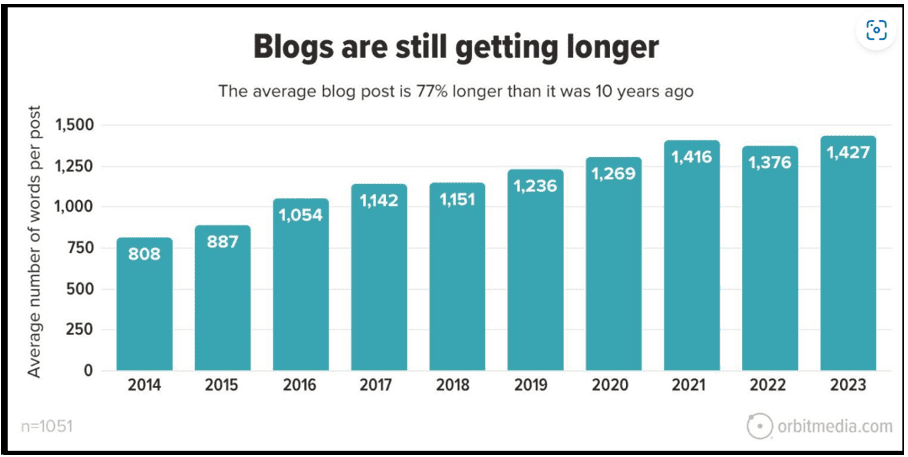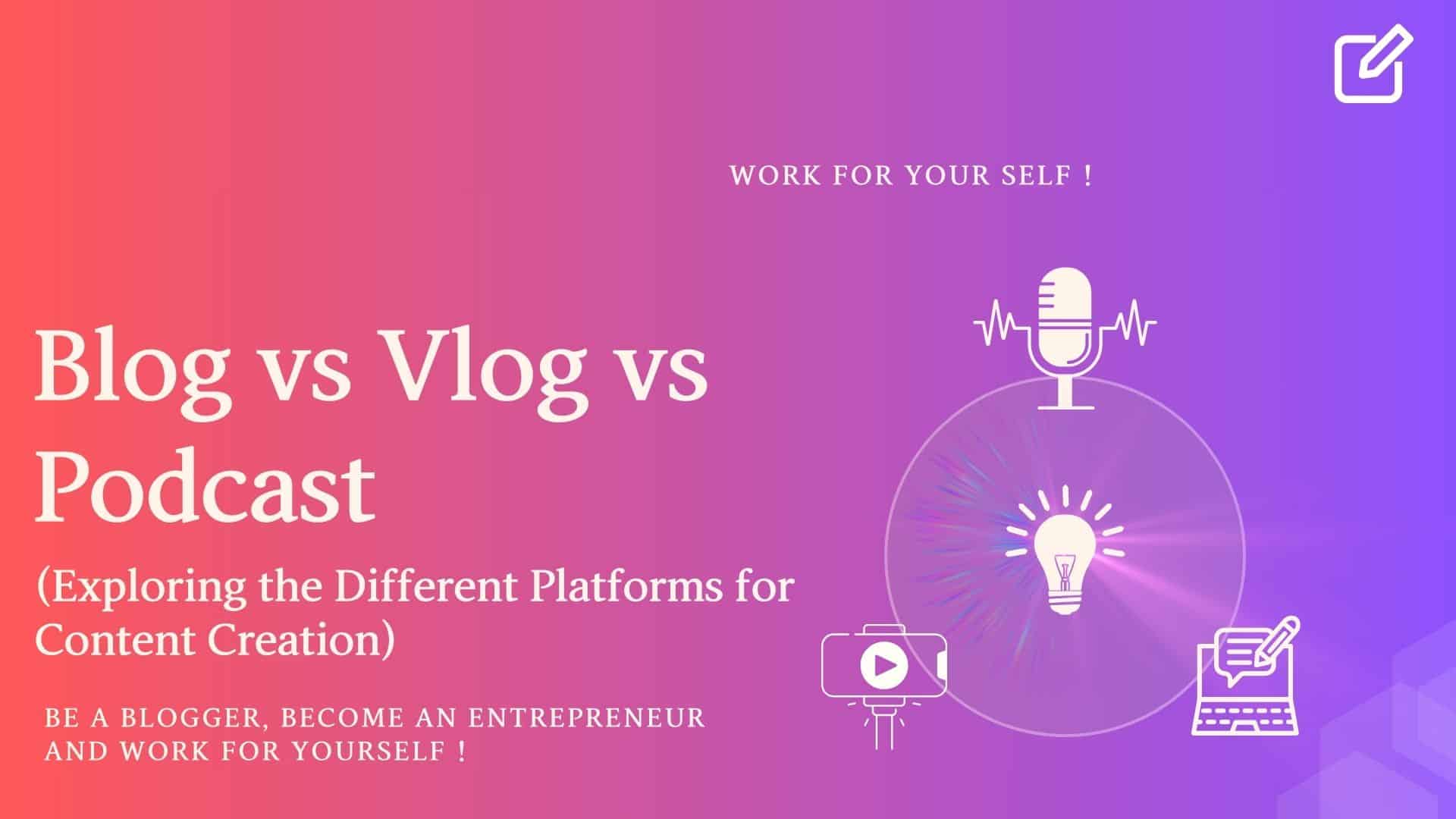One of the common questions that often arises in the blogging world, is what should be the ideal length for blog posts that can capture readers’ attention and boost SEO.
Is it important to know the length🤔 Definitely, you might be interested in knowing the word count of the story you would build for your readers.
Is there any ideal length?
If yes, then what 🤔 if not, then why so much hype in the blogging world about the length of the blog?
Let’s start with solving a riddle-
It’s neither short nor too long; it depends on your understanding and readers’ needs.
Tell- Tell!!
It’s very simple, isn’t it? Yes, you guessed it right. It’s about your Blog Post length.
Hold on, don’t worry.
Today, we will decode the problem and develop the ideal blog post length so that it gets noticed by Google and solves your reader’s problems as well.
So, stay connected.
While there isn’t a one-size-fits-all answer, finding the optimal length for your blog post is crucial for keeping readers engaged and optimizing search engine visibility.
Blog length is not merely a matter of word count; it holds the potential to be a strategic tool in your blogging efforts.
So, instead of neglecting the importance of blog length, start embracing it as a valuable asset that can make a significant difference in reaching your blogging goal.
While quality is undoubtedly essential, blog length is crucial in captivating readers, enhancing search engine optimization (SEO), and driving meaningful engagement.
But before that, let us debunk the myth about blog word count and see if the blog length matters.
Can’t we simply focus on the quality of the content?
Let’s debug it.
Table of Contents
ToggleDebunking the Myth of Blog Post Length: Finding What Works for You

Let’s explore the statistics, explore diverse perspectives, and empower what works for you and your audience.
Let’s understand this through 2 cases.
- Long-form Blog content
- Short-form blog content
1. The Case for Long-Form Blog Content
Longer blog posts offer a deeper exploration of topics, providing extensive insights and analysis.
Let’s see the survey result and analyze the ideal length of the blog post.
Survey Conducted by Orbit Media:
They have researched and surveyed 1051 bloggers over the last 10 years to find the ideal blog post length.
And you will be amazed by the results. Let’s see it.

Source: Orbitmedia.com
As per their survey, in the year 2023, the average word count was 1427.
Now, let’s see the percentage of bloggers writing long blogs and what impact they see in terms of their results (source: orbitmedia.com).
| Blog length | % of Bloggers using, % of Traffic getting |
| less than 500 words | 5 % Bloggers using ; 14 % Traffic getting |
| Between 500-1000 words | Between 500-1000 words 31% Bloggers using; 20% Traffic getting |
| Between 1000-1500 words | Between 1000-1500 words 30% Bloggers using ; 21% Traffic getting |
| Between 1500-2000 words | Between 1500-2000 words 20% Bloggers using ; 33% Traffic getting |
| Between 2000-3000 words | Between 2000-3000 words 11% Bloggers using ; 43% Traffic getting |
| Greater than 3000 words | Greater than 3000 words 3% Bloggers using ; 53% Traffic getting |
Let’s interpret these results and see if there is any relationship between blog length and SEO Optimization.
Bloggers who write blogs with more than 3000 words get 53% of their results in engaging audiences, SEO optimization, and satisfying readers’ needs by delving deep into the topic, attracting backlinks, and enhancing overall domain authority.
So, longer content might be correlated with a blogger’s success, as they are in-depth, well-researched, and practically implemented blog content.
Let’s see more data from Hubspot.com, Semrush.com, rocketcontent.com, and wix.com and see the ideal length of the blog.
| Blog Type | Hubspot.com | Semrush.com | Rockcontent.com | Wix.com |
| “What is” & Informational blog | 1300-1700 words | 1000-1500 words | 1000- 1500 words | 1200- 1500 words |
| “How to” and Guide blog | 1700-2100 words | 1500-2500 words | 1500-2000 words | 1700-2100 words |
| Listicles | 2300-2600 words | ———— | ———— | 2300-2500 words |
| Pillar blog | 4000+ words | 3000+ words | 3000+ words | 4000+ words |
Backlinko, in their research, interprets that the word count of the top 10 Google first page results shows an average word count of 1447.
HubSpot reports that blog posts around 2,250-2,500 words tend to perform the best regarding organic traffic and inbound links.
Wait, don’t get confused. You don’t have to strictly follow these word counts.
It’s just for your reference that the longer blogs perform well.
But it doesn’t mean you should unnecessarily add more words just to achieve these word counts.
As long as you are satisfied with the word count based on what type of blog you are writing, it’s good.
Remember, these are just numbers. You are the best judge of the word count.
Ideally, a blog post of around 1500-2500 words is called a golden blog post word count.
Most studies reveal that word count could be between 500-4000 words, some even longer, unless and until readers query intent is satisfied.
Remember, long content is only one aspect, but you should always focus on high-quality content to enhance your domain authority, traffic, and visibility.
How can you find the optimal length of the blog word count without any tool?
Search your blog topic on search engines and see what and how long other bloggers in your niche are writing.
Let’s see one example from a Google search.
Suppose I want to write a blog post related to “How to start a Blog?”
The blog should have all the details and must cover every step so anyone can start a blog within 20-30 minutes.
Let’s see the top 5-6 blogs and their word count.
| Website | Blog Name | Word Count |
| https://www.theblogstarter.com | How to Start a Blog in 2024-Easy Guide | 6068 |
| https://www.ryrob.com | How to Start a Blog (and Make Money) in 2024 | 12164 |
| https://neilpatel.com | How to Start a Blog That Make You Money | 8199 |
| https://www.theminimalists.com | How to Start a Successful Blog in 2024 | 10355 |
| https://smartblogger.com | How to Start a Blog:12 Super Simple Steps for Beginners | 10891 |
| https://www.shoutmeloud.com | How to Start A Blog in 2024 [Blogging Guide For Beginner’s] | 3554 |
The table above shows that the detailed blog should be around 3000+ words.
Remember, all these blogs include infographics and videos and are very comprehensive.
Anyone can start a blog by following the steps given in these blogs.
So, long blogs are those blogs that are detailed, well-researched, and provide clear guidance to the audience.
2. The Case for Short-Form Blog Content
Shorter blog posts have their merits, appealing to readers with limited time and shorter attention spans.
1. Grab Attention and Engage:
Concise content captures attention quickly, making a strong impression in a limited time.
Using clear and concise language helps engage your audience, encouraging them to read or consume the entire message.
Avoid unnecessary fluff or tangents, and get straight to the point to maintain their interest and involvement.
2. Improve Understanding and Retention:
Concise content facilitates better understanding by presenting information clearly and organized.
Avoid overwhelming readers or listeners with excessive details or complex explanations.
Break down ideas into digestible chunks, focusing on the key points to enhance comprehension and retention.
3. Drive Action and Results: Concise content more effectively inspires action and achieves desired outcomes.
By maintaining clarity and brevity, you guide your audience toward the specific actions you want them to take, whether making a purchase, signing up for a newsletter, or sharing your content.
When your message is concise and focused, your audience is more likely to understand and act upon it.
Let’s look at the bloggers’ blogs, which are not long and still rank in Google.
| Website | Blog Name | Word Count |
| https://www.wpbeginner.com/ | How to Clean Up Your WordPress Database for Improved Performance | 551 |
| https://hostadvice.com/ | How to Optimize WordPress Database Using WP-Sweep | 849 |
| https://mssaro.com/ | How to Optimize WordPress Database Using WP-Sweep | 1381 |
| https://www.greengeeks.com/ | How to Cleanup and Optimize a WordPress Database | 1057 |
The top blogs on this topic have been written within 1500 words. So, what intake have you taken from this?
Is word count dependent upon your blog topic, and how well do you satisfy your readers’ quest?
Remember, word count is important, but it is only one parameter for a blogger’s successful journey. What matters most is blog content quality and consistency.
Point to Remember while Considering Blog Post Word Counts
Determining the ideal word count for your blog posts is a critical decision impacting reader engagement and search engine optimization (SEO).
How to Balance User Engagement and SEO
Let’s see the key points on how to balance engagement and SEO.
1. Understand Your Target Audience before Deciding the Blog’s Word Count
Identify the purpose of your blog article.
Are you looking to educate, entertain, or inform your readers?
Understand your target audience’s preferences, interests, and demographics to tailor your content length accordingly.
Aligning your goals and understanding your audience are the first steps in finding the right length for your blog articles.
2. Value Quality over Quantity During Deciding the Blog’s Length:
Focus on providing valuable and informative content rather than simply meeting a specific word count.
Ensure your blog posts address the core topic thoroughly, offering actionable insights or solutions to your readers’ pain points.
Striking the right balance between valuable content and word count is crucial for maintaining reader engagement and credibility.
3. Search Engine Optimization (SEO) Consideration on Blog’s Length:
Longer blog posts rank better in search engine results, often covering topics in-depth and demonstrating expertise.
Research target keywords and incorporate them naturally throughout your article.
Search engines favor content that meets user intent and provides substantial information.
4. Long-Form vs. Short-Form Content:
Long-form content (over 1,500 words) is ideal for detailed guides, tutorials, or in-depth analysis.
It allows for more comprehensive coverage, establishing your authority and encouraging backlinks.
Short-form content (around 500-800 words) appeals to readers seeking quick, easily digestible information.
Avoid unnecessary fluff or repetitive information that may distract or bore readers.
Focus on captivating introductions, clear subheadings, and engaging storytelling techniques to maintain reader interest.
5. Break up Long Posts for Readability:
When crafting longer posts, use subheadings, bullet points, and numbered lists to enhance readability.
Break the content into manageable chunks, making it easier for readers to skim and find the necessary information.
Including relevant images, infographics, or videos can also add visual interest and aid comprehension.
6. Experiment and Analyze Blog Post Length:
Test different word counts in your blog posts and analyze their performance.
Monitor metrics such as time on page, bounce rate, and social shares to gauge reader engagement.
Compare how different word counts impact your search engine rankings and organic traffic.
Conclusion (on Blog Post Word Count)
Finding the optimal word count for your blog posts requires considering reader engagement and SEO factors.
Understand your audience’s preferences and needs, prioritize quality over quantity, and balance long-form and short-form content per the topic.
Consider SEO guidelines for content length while focusing on providing valuable insights and meeting user intent.
During deciding the ideal length of your blog post, the main focus should be on providing high-quality, valuable content that resonates with the readers and keeps them engaged until the end.
What Next to Read
After deciding on your topic, start writing your first blog. You might select the writing platform that best suits you so that the target audience can be reached.
After writing your blog, do extensive promotions of your blog on different social media platforms, like Facebook, Pinterest, Twitter, and Quora,
Make a list of email subscribers, and try to present your blogs as YouTube videos so that more audience can be targeted and you can start monetizing your blog.
Frequently Asked Questions (FAQ) on How Long Your Blog Should Be?
A: While there is no one-size-fits-all answer, studies suggest that blog posts with a word count between 1,500 and 2,500 words tend to perform well. However, the ideal length can vary depending on the topic, audience, and content objectives.
A: Yes, shorter blog posts can be effective, especially when the topic is more concise or requires quick tips. Shorter posts can capture readers’ attention with their brevity and provide valuable insights or actionable advice without overwhelming them.
A: Longer blog posts often rank higher in search engine results because they tend to provide more comprehensive coverage of a topic. They allow for in-depth exploration of subtopics, incorporation of relevant keywords, and increased opportunities for backlinks, all of which can positively impact SEO rankings.
A: Yes, dividing a long blog post into a series of parts can have benefits. It allows for more focused and in-depth coverage of the topic while encouraging readers to return for subsequent parts. Just ensure that each part stands alone and provides value to the reader.
A: The ideal blog post length for reader engagement depends on the audience’s preferences and the complexity of the topic. For in-depth guides or technical subjects, longer posts with detailed information may be more engaging. However, for more straightforward or quick tip-oriented content, shorter posts may hold readers’ attention better.
A: Quality content should always be the priority. Focus on creating valuable, well-researched content that engages your audience. While word count is a consideration, providing high-quality information, unique insights, and expert opinions will ultimately drive reader engagement and enhance your blog’s reputation.





